The doctoral programme HOROS (host response in opportunistic infections, www.horos.at), coordinated by the Medical University of Innsbruck, which was approved by the Austrian Science Fund FWF in 2013, later successfully re-evaluated for another four years, and finally granted a transitional phase of 18 months, will now officially end on 31.08.2023. To mark this occasion, the HOROS Faculty invited to a ceremony on 30.06.23 at the AudiMax. Thanks to additional financial support from the MUI, HOROS, whose logo is the falcon, will be able to "fly" for another year until 31.08.24.
HOROS investigates the host-specific factors in infections with pathogens that usually do not kill immunocompetent patients but often cause life-threatening complications in immunocompromised individuals. In the multidisciplinary excellence doctoral programme HOROS, the genetic basis and molecular causes of these so-called opportunistic infections have been increasingly studied for 9½ years. Seven lecturers from the Medical University and Birgit Weinberger, who followed the retiered Beatrix-Grubeck-Loebenstein, from the Leopold-Franzens University, formed the dedicated teaching staff of natural scientists and medical doctors.
At the ceremony, which was musically accompanied by the Anna Schnegg Duo, HOROS speaker Reinhard Würzner from the Institute of Hygiene and Medical Microbiology welcomed all those present and presented small gifts to three of the four previous or present administrators, Benjamin Hetzer, Marco Grasse and Silke Huber, as well as to the pioneer of doctoral programmes in Innsbruck, Bernhard Flucher, whose signature is also visible in the HOROS programme. He and Francesco Ferraguti gave short presentations on the first two FWF-funded doctoral programmes integrated at the MUI, MCBO and SPIN. Flucher also shed light on the beginnings of the doctoral programme culture at the start of the millennium and what it was like before. HOROS benefited from both programmes, but especially from MCBO. Following these two presentations, Würzner presented the special features of HOROS in his short talk, such as
- - 9 Science Days on campus together with other programmes
- - Almost 100 lectures by invited speakers
- - 9 International Science Retreats, mostly in Obergurgl
- - 10 international conferences organised on site
- - Visiting HOROS Professorship, awarded to Prof. Peter Garred from Copenhagen
HOROS as a model for CORVOS: Würzner detailed how HOROS became more and more international and how the experiences of HOROS were helpful in applying for CORVOS. CORVOS, with the raven as its logo, is now conducting international research in host response focused on the complement system in opportunistic infections. This programme, approved in 2019, supports 15 PhD students across Europe in an EU-funded Marie Skłodowska Curie Horizon 2020 Innovative Training Network at 10 European universities. Two of the MUI students spent half a year each in Budapest or Lübeck, while three students from Budapest and Lübeck, but also Oslo, spent half a year in Innsbruck - all of them are to receive a "Double PhD" degree from two universities each after successful completion of their studies.
Bridging HOROS to the clinic and the Leopold-Franzens University: A trademark of HOROS is to build a translational bridge between basic research and clinical application. Günter Weiss, Director of the Innsbruck University Clinic for Internal Medicine II (focus on infectiology, immunology, pneumology and rheumatology) and Cornelia Lass-Flörl, Director of the Institute for Hygiene and Medical Microbiology, stand for this. Hubertus Haas and Florentine Marx-Ladurner from the Institute of Molecular Biology are on the team for basic mycological research. Florian Kronenberg represents genetics, another MUI focus. Beatrix Grubeck-Loebenstein from the Research Institute for Biomedical Ageing Research at the University of Innsbruck, who has been the deputy spokesperson for many years, and now Birgit Weinberger, have bridged the gap to the LFU.
Benchmarks for HOROS: HOROS was ultimately supported with over 5 million euros, with 60 students being financed with congress trips, stays abroad at renowned institutes - often for several months. Furthermore, some received transitional funding after completing their studies, 14 students were financed for the entire 4 years with salary and research consumables. In total, even more than 100 students at the Innsbruck campus have benefited from this PhD programme and especially from the practical training. "The feedback from our PhD students has mostly been enthusiastic," explains HOROS speaker Würzner, "so we are pleased to be able to look back on almost 10 years of successful PhD training.
Students' view and look into the future: The last presentation was given by the students, represented by Hussam Abd El Halim and Cristina Schöpf, who reported on the various retreats, excursions and company visits in a beautifully illustrated talk. Würzner also presented them with a small gift. At the end of the festive programme, as in between, harmonious pieces by the musical duo, most of which were also about birds, rounded off the festive programme. There was an opportunity for personal exchange and a look into the future - during which the importance of the HOROS badges for the 'corporate identity' of the emerging alumni network was emphasised - at the subsequent standing reception in front of the AudiMax with buffet, where many celebrants enjoyed themselves for a long time.
Tasks of a Doctoral College: Doctoral colleges (DKs) are intended to form training centers for highly qualified young academics from the national and international scientific community. They should support the development of scientific priorities at Austrian research institutions and promote the continuity and impact of such priorities. A doctoral college can only be anchored at research institutions with the right to award doctorates.
Handshake

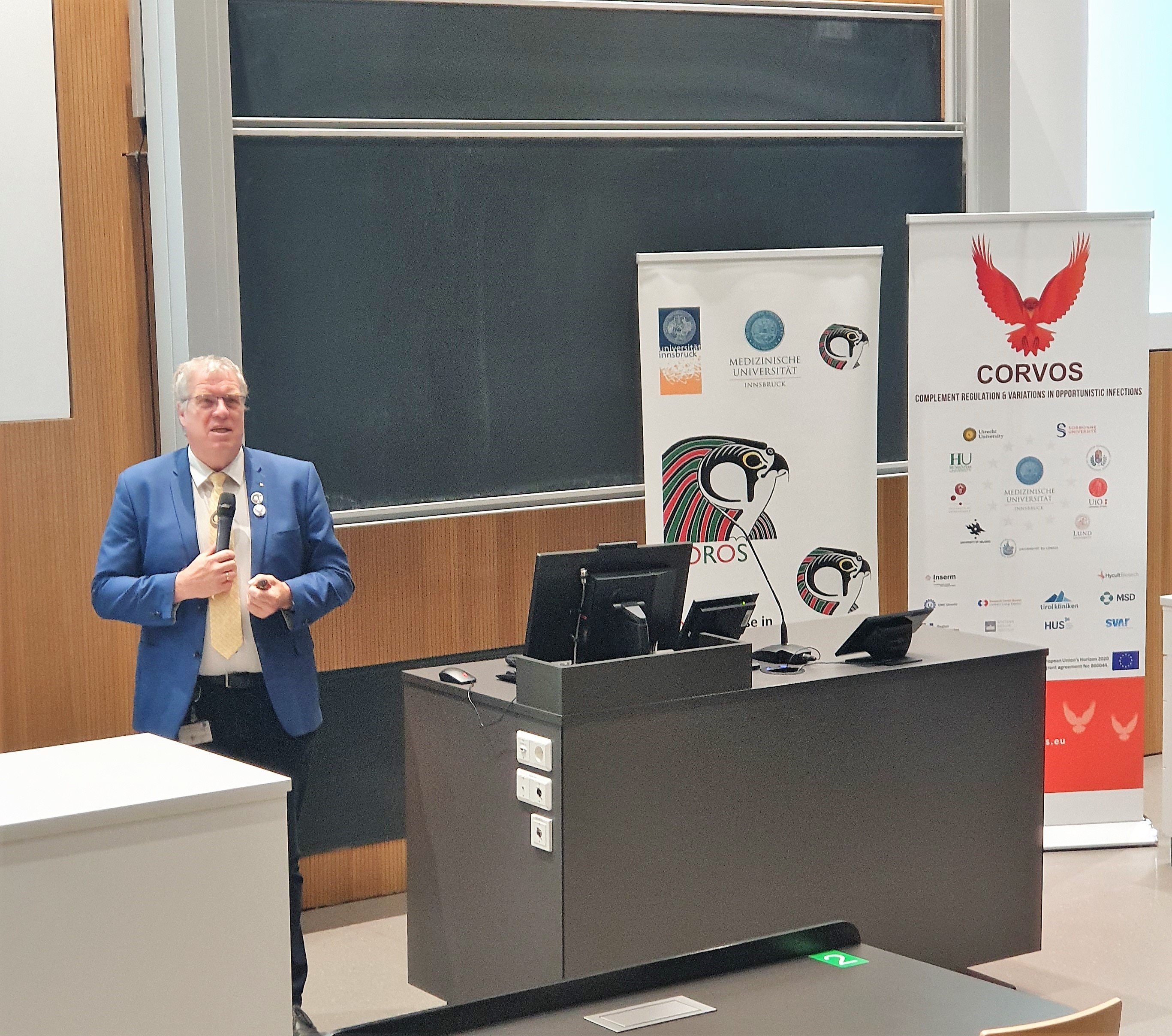
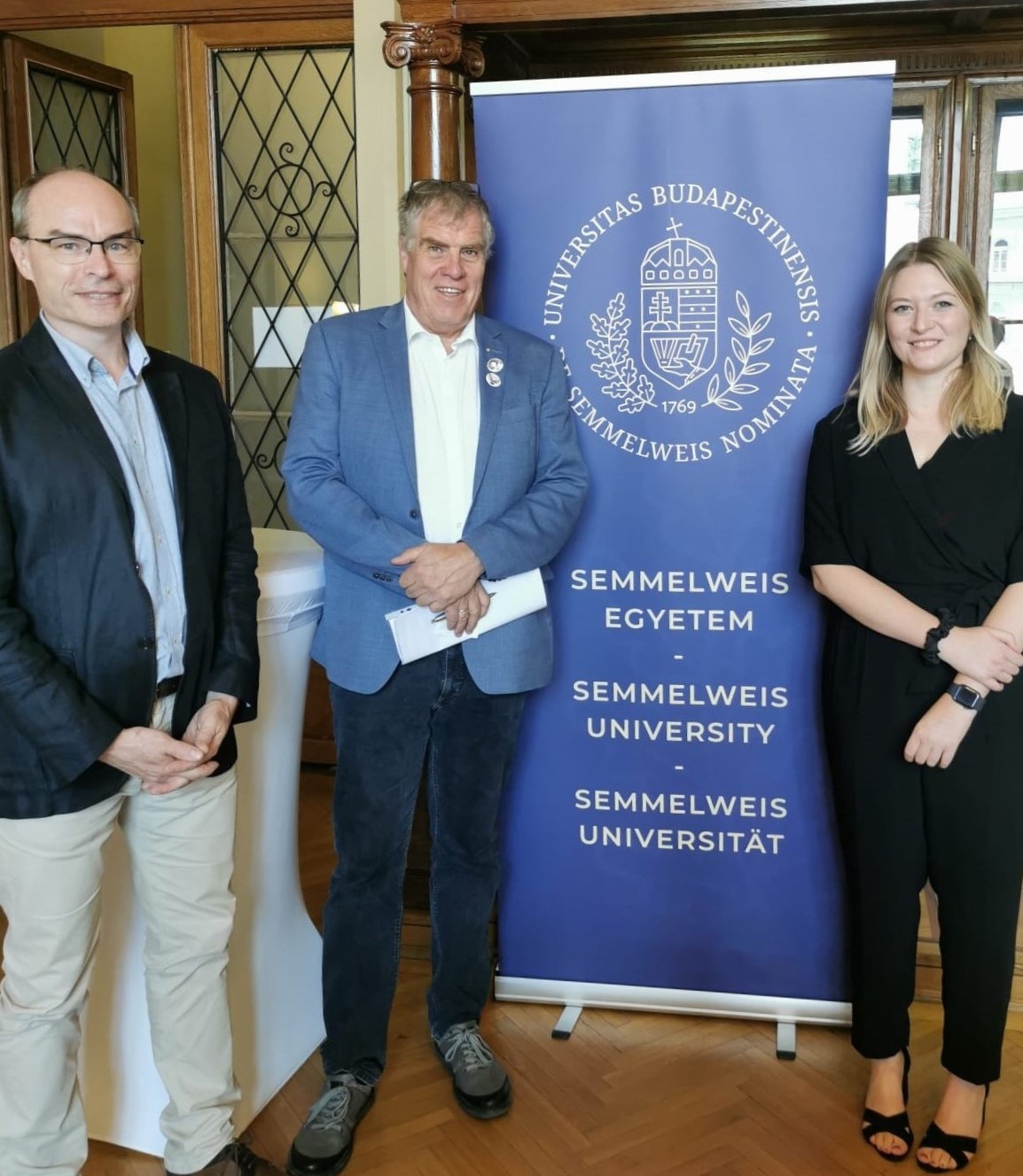
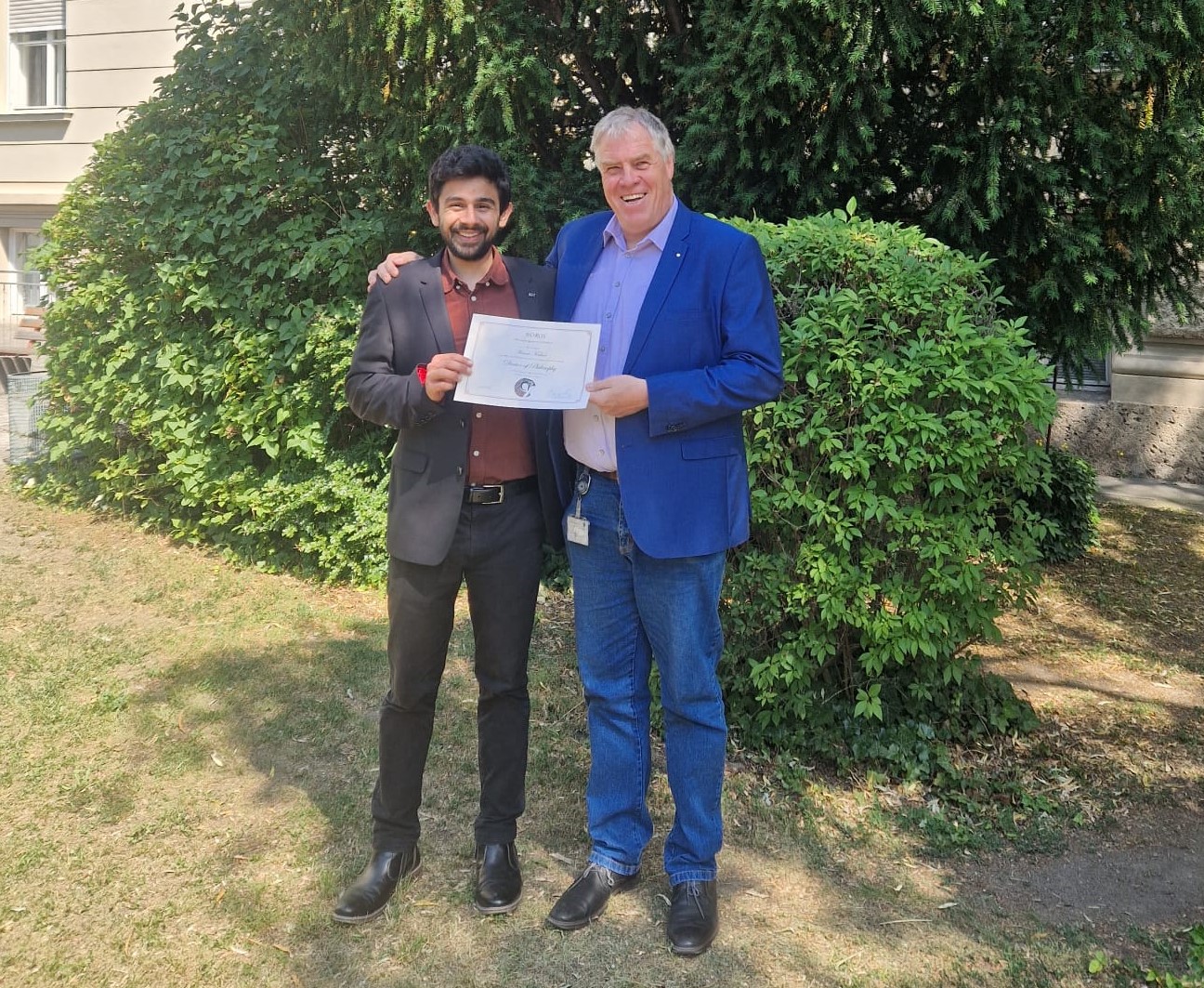
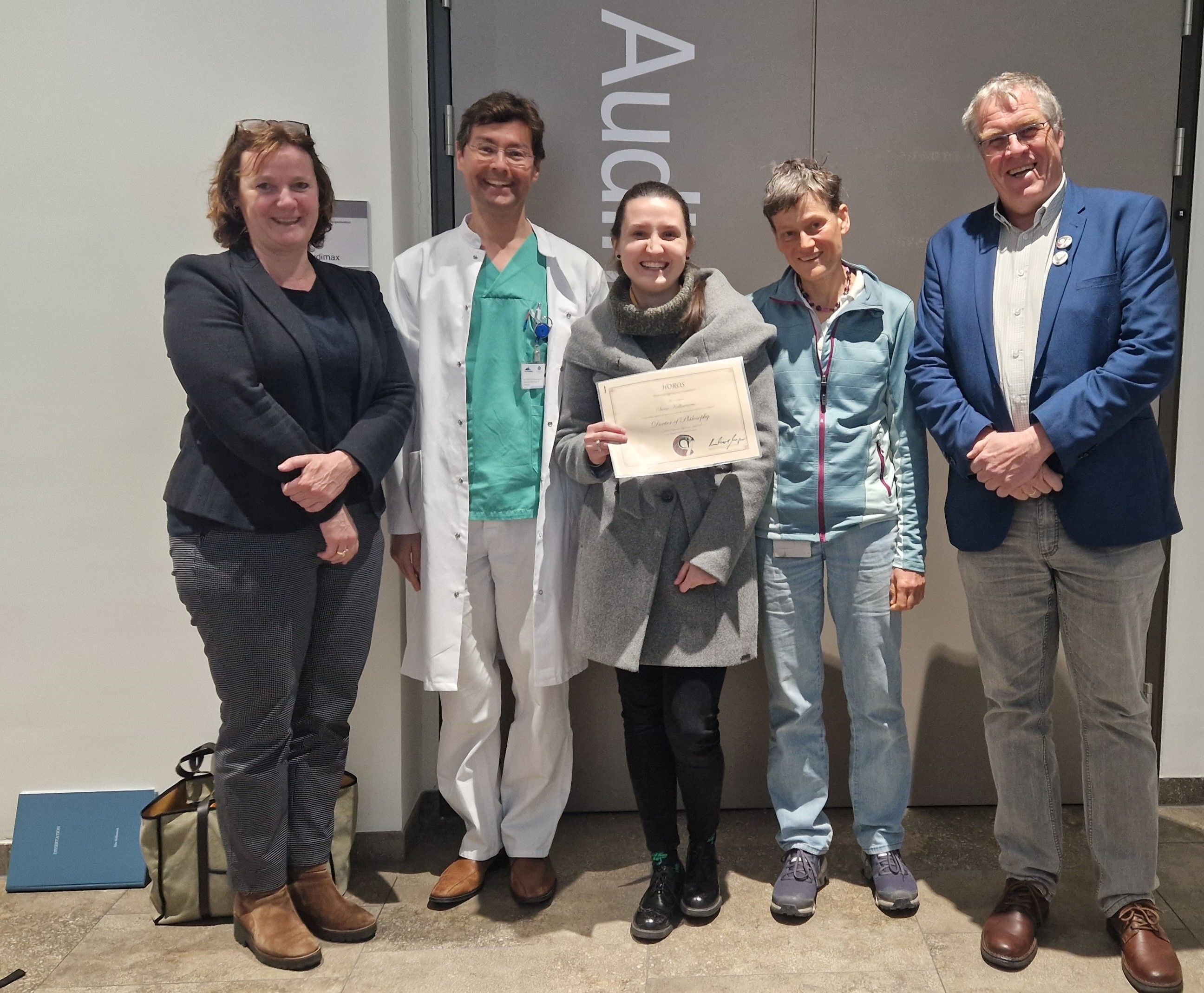





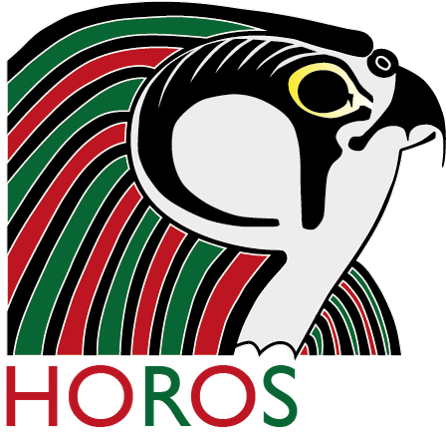
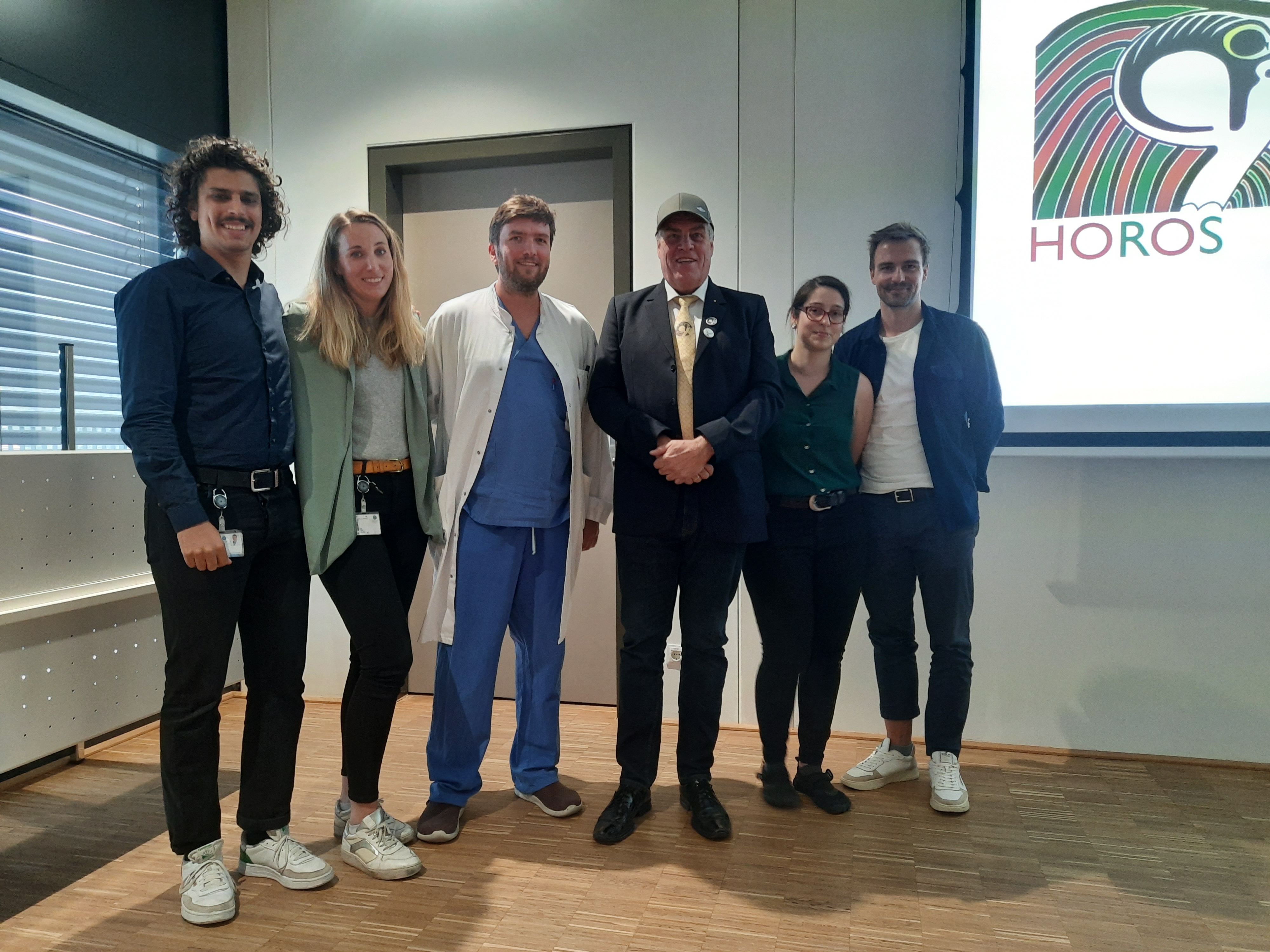
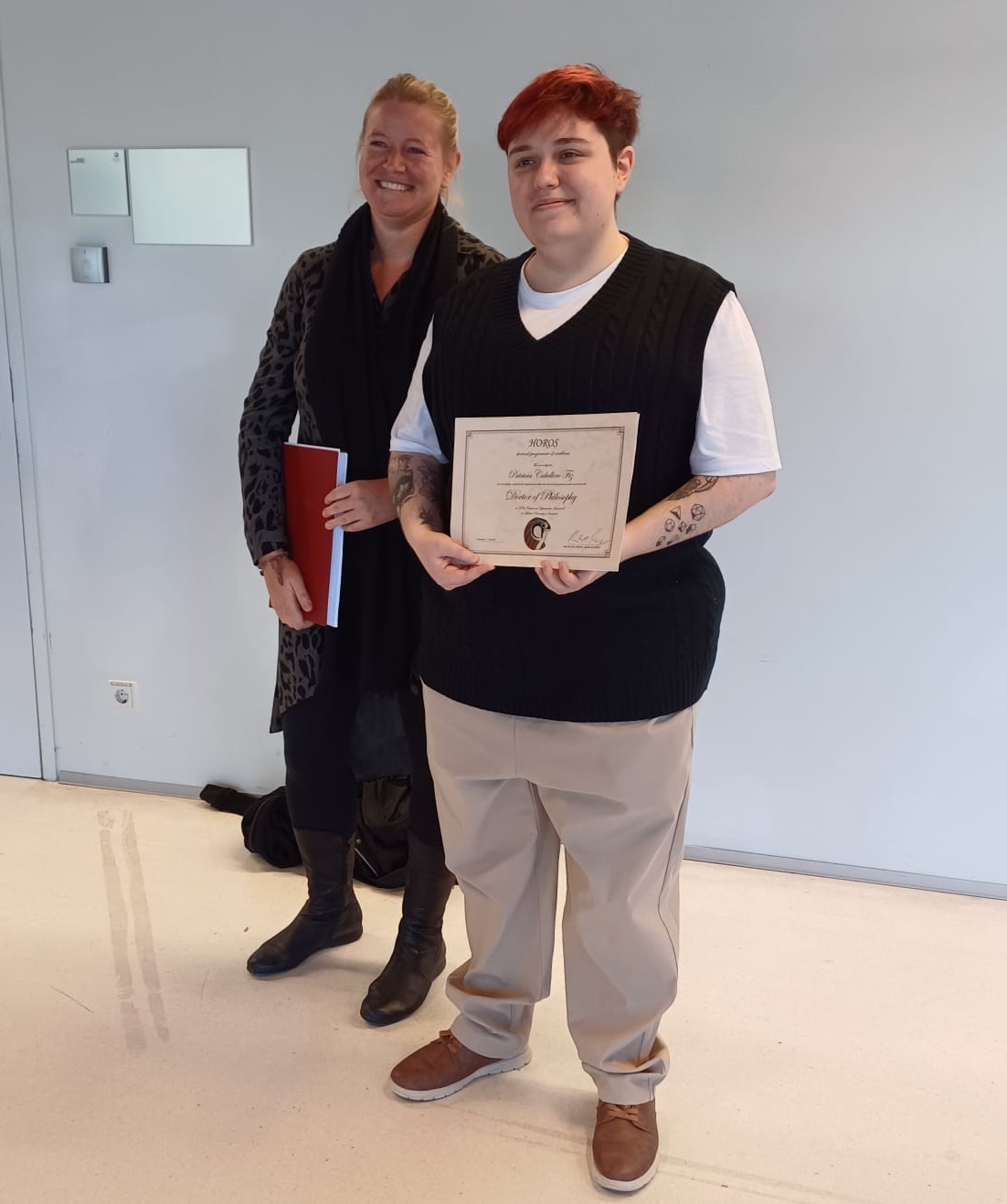
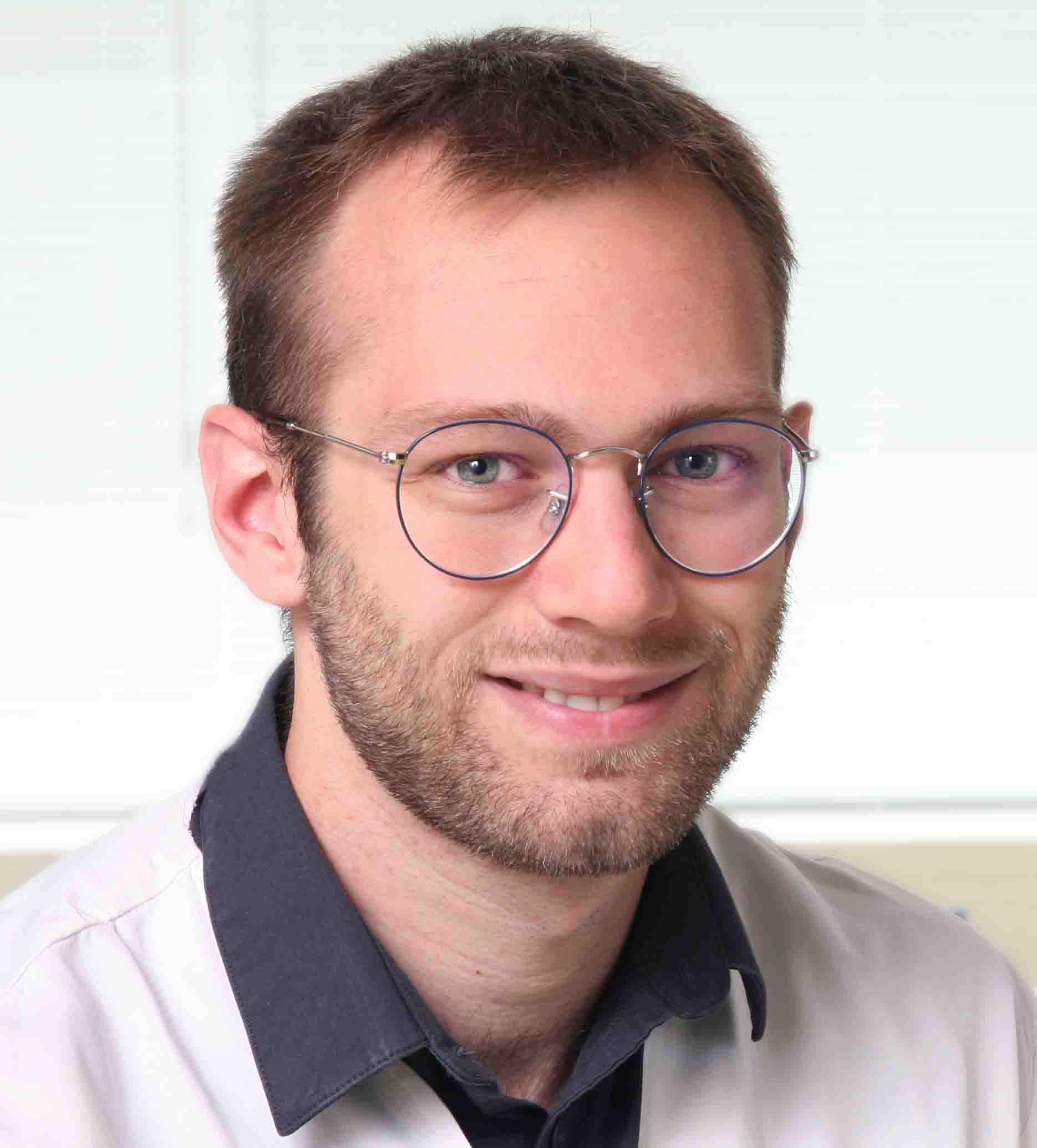
.jpg)